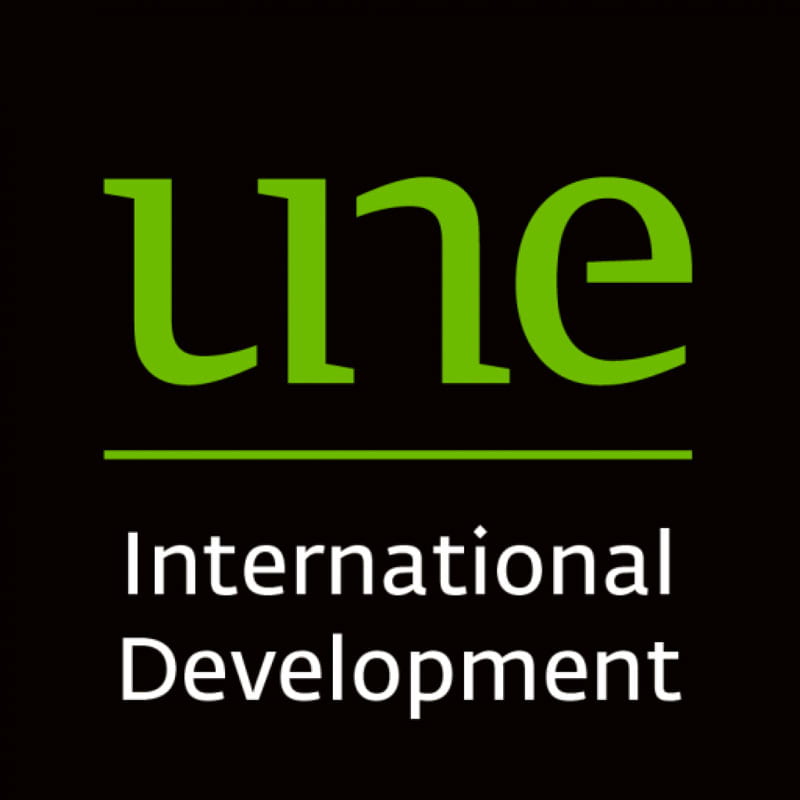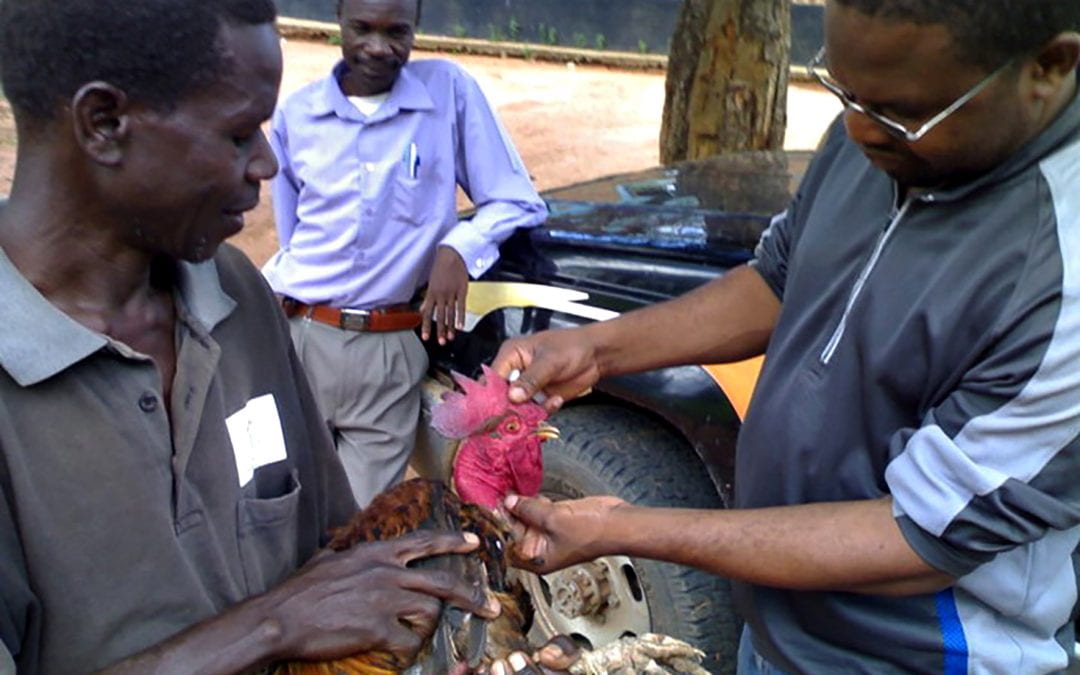“If these indigenous chickens are lost, these rural communities will have nothing to depend on in terms of their household income and food security.” –UNE PhD student Christopher Kanyama.
Agriculture is the primary livelihood source for most rural communities in Zambia and the custodianship of essential indigenous animal genetic resources is crucial to ensuring their food security and other livelihood assets. Christopher Kanyama, Principal Livestock Research Officer for the Ministry of Fisheries and Livestock in Zambia and UNE PhD student is primarily concerned with not only the loss of indigenous breeds of cattle and poultry, but the subsequent socio-economic consequences that the rural communities may face as a result of these losses.
Christopher’s research deals with the conservation of indigenous animal genetic resources (cattle and chickens) and aims to increase the benefits among small-holder farmers, by facilitating sustainable production practices and promote access to formal markets to increase household incomes and food security among rural farmers.
The importance of successful conservation and utilisation of indigenous chicken breeds is also tethered to climate change that threatens less adaptable non-indigenous commercial breeds, which result in increased management and production costs. Conserving and maintaining the sheer amount of genetic animal resources needed to ensure sustainability is possible through the cooperation between the government and other stakeholders, namely the small holder farmers of the rural communities.
Citing the importance of such cooperation, Christopher shares, “Studying in Australia, and particularly at the University of New England has exposed me to a number of insights, some of which can be applied in my country, what they call ‘triple helix’ where research done by universities is done side-by-side with industry and the government so that policies and plans can respond to the needs of these rural communities. The approach we need to use in research must not leave these rural communities behind.”
Christopher employs a collaborative and multi-disciplinary approach to identifying challenges faced by farmers and designing sustainable interventions through researcher-community-stakeholder engagements. Major interventions emanate from understanding the various production profiles of the rural community farms through surveys, collaboration in farmer trainings, and promoting active value addition by indigenous poultry farmer groups and cooperatives in order to access formal markets.
On the various outcomes of his research, Dr Amy Moss UNE Postdoctoral Fellow and Christopher’s PhD supervisor shares, “Christopher’s research is important and unique as he not only wants to improve poultry production and food security outcomes for smallholder farmers in Zambia, but he wants to do it by conserving indigenous breeds of poultry, which is also important from a biodiversity perspective. Completing his research both in Australia at UNE and in Zambia means that Christopher has the opportunity to connect with many different scientists, students, and observe the different poultry production systems in both countries. It has also brought great new collaborations for UNE, and important discussions surrounding the sustainable development of global agriculture and what that means for different places.”
Christopher is part of the Universtiy of New England’s Doctor of Philosophy (Innovation) PhD.I – Professional Practice Doctorate programme.
More on UNE’s School of Environment & Rural Science HERE
For more information on Christopher’s research: ckanyama@myune.edu.au


We need collaboration both here in Australia and Zambia to realise the success of this innovation.